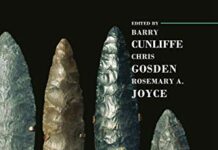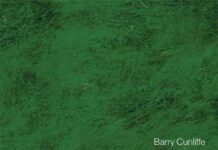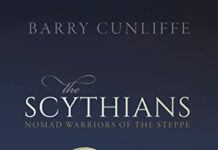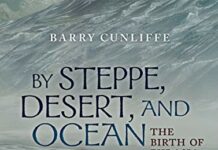
Ebook Info
- Published: 2003
- Number of pages: 184 pages
- Format: PDF
- File Size: 1.91 MB
- Authors: Barry Cunliffe
Description
Savage and bloodthirsty, or civilized and peaceable? The Celts have long been a subject of enormous fascination, speculation, and misunderstanding. From the ancient Romans to the present day, their real nature has been obscured by a tangled web of preconceived ideas and stereotypes.Barry Cunliffe seeks to reveal this fascinating people for the first time, using an impressive range of evidence, and exploring subjects such as trade, migration, and the evolution of Celtic traditions. Along the way, he exposes the way in which society’s needs have shaped our visions of the Celts, and examines such colourful characters as St Patrick, Cú Chulainn, and Boudica.ABOUT THE SERIES: The Very Short Introductions series from Oxford University Press contains hundreds of titles in almost every subject area. These pocket-sized books are the perfect way to get ahead in a new subject quickly. Our expert authors combine facts, analysis, perspective, new ideas, and enthusiasm to make interesting and challenging topics highly readable.
User’s Reviews
Reviews from Amazon users which were colected at the time this book was published on the website:
⭐The Celts have had a long and complex journey, both through history and myth, and this entry in the excellent Very Short Introduction series is a great place to start tracing that journey. Some historians question whether ‘Celtic’ is even a meaningful or useful term. Is it a modern invention? Who were, or are, these people or peoples we call ‘Celts’? Cunliffe warns at the outset that finding reliable answers will not be easy, then proceeds to make it as easy as possible.He views the subject from various angles – linguistic, archeological, Classical (the Roman and Greek accounts), ethnological – and gradually builds a coherent picture. His bias reflects the current orthodoxy that cultural influence spreads without the mass migrations that used to be assumed — ideas and customs spread, not necessarily people. He encourages us to take a view from the Atlantic, and see the Celts as European peoples who traded along that seaboard. Some readers might wish for more detailed maps — the author or publisher seems to assume that you will know which rivers are the Marne, Danube, etc.This is an authoritative and accurate work, although I did spot one surprising blunder: On page 137, the ceremony of All Souls is described as taking place on October 31, preceding All Saints. In fact it follows All Saints, on November 2.Cunliffe’s prose is very readable, except that he has a fondness for litotes (“It is not unreasonable to suppose…” “It is not unlikely that…”). This can get not unirritating after a while.A great deal of misinformation surrounds Celticism. It has become a tool for propagandists and nationalists. There is a certain amount of healthy debunking in this book, but the Celts emerge alive and well. Before I read it, I thought I was of Celtic descent on my mother’s side. After reading it, I still do, but now I have some idea of what that means. If you want to know about the Celts, then you need to choose your sources with care, because – as Cunliffe hints – there are many ‘lunatic fringe’ publications out there. This is a safe place to start.
⭐Kudos to the 4 reviewers who have preceded me – they covered many of the points I was planning to make. So let me make the following two observations and leave it there.First, I commend Mr. Cunliffe on the book’s clever organization. Knowing pretty much from the start that we continue to know very little about the Celts, I wondered why I should not just put the book down. But I am a fan of Cunliffe and thus decided to work my way through the book and if I was disappointed, so be it – after all, it is a volume in the “Very Short Introductions” series. But by building block by block, layer upon layer, Cunliffe walks the reader through a solid methodology that helps the reader to understand why, at the end of the book, there is really very little to say about the Celts and that we shouldn’t be too disappointed.Why? Because I was pleased to be reminded that “Celt” is really more a modern term of association in the face of oppression (Irish, Scots, Welsh versus English; Bretons versus French, etc.) than an appellation which accurately describes a major people (or peoples) in mid-Europe from the 6th Millenium BCE forward.Worth the money and time spent.
⭐Finally, an introduction to the Celts based on scholarship and not wishful thinking. Popular books make the Celts out to be either the greatest heroes or the worst villains of Europe. This intro relies on archeology, linguistics (philology) and historical sources to tease out who the Celts were (and even IF they were). Origins, culture, migrations, art, and movements are covered. Modern treatment of the Celts is also covered, and how a new mythology has grown up around them. This overview provides a departure point for interested students to begin their studies with some solid grounding.The reason for 4 stars vs 5 is the lack of comment on genetic studies. The author is clearly aware of research in this field but makes no real mention of it. For example, I look at a distribution map of haplogroup R1b and I see it apparently mirroring the present day distribution of “Celts”. But I also recognize my inexpert tendency to draw these conclusions may not be scientifically warrantied. I would love to have read the author’s comments on genetic investigations, and recommendations for further study. Genetic studies have something to offer, but how does it overlap the other disciplines?Otherwise, great little book. Highly recommended.
⭐Informative but dry. Advocates a notion, that might seem offensive to some Celtic nationalists, that though there is a self-identified and culturally significant contemporary Celtic ethnic grouping, it may have little genetic or cultural continuity to the Celts of 2500 years ago – except perhaps in a rarified manner through preserved languages. Acknowledges that it suffers, as all Celtic history does, from the utter and nearly complete destruction of ancient Celtic civilization and culture, except at its geographic margins, by deliberate Roman policy. This author does not specifically advocate for the position, but the evidence implies that what we today know as Western European civilization was built in the aftermath of a Roman genocide.
⭐Extremely informative book. Great read if you have an interest in the Celts. It really gives you an idea of who they are and makes them very relatable as people. This book goes through the history from a very early point and in decent detail without becoming overly dry like a lot of history books do. I also found it great that events that are discussed they also put an excerpt from written records of the time after so you can get a real sense of the feelings of the people involved. I’m over half way through this book and so far I’d recommend it highly if your intreseted in this topic.
⭐Was there a single cohesive group that we could say were “Celts”? The classical writers from Roman times called a lot of people “Celts”; not to mention “Gauls”. A very interesting read. If you want to become educated about the Celtic culture, read this book and, maybe, “The Ancient Celts” also by Barry Cunliffe.
⭐For a nugget of a book very informative and eye opening. Filled with little gems of info and history, but sadly requires some level of academic understanding with its terminology and assumption of previous knowledge or reading
⭐With a subject like this, small is definitely beautiful. Very little is actually known about the people who were said by others to call themselves Celts and this book sorts out what it actually is and and how why it has been mixed up with a lot of nonsense.
⭐Generally speaking, those VSIs written specifically for this series are livelier, more recent, more engaging and more in keeping with its spirit. Cunliffe’s The Celts (2003) illustrates this distinction well.The author is an expert on Celtic civilisation and well-placed, therefore, to separate myth from reality. The myth has a surprisingly long history. Plato, writing in the 4th century BC, was the first in a long line to characterise the Celts as warlike and drunken. Strabo thought ‘the whole race … war-mad’ while Diodorus enjoyed Roman merchants’ exploitation of the Celts’ perceived love of alcohol: ‘for one amphora of wine they got a slave – a servant in return for a drink!’ All excellent propaganda and amusement for a Graeco-Roman audience, of course.Cunliffe, however, presents a culture which is in many ways parallel, not inferior, to those of the Mediterranean. The Late Bronze Age warrior-aristocracy of northern Europe, with its rituals of hospitality, gift-exchange and obligation, was ‘not at all unlike the kind of society depicted in the works of Homer.’ Celtic cultures had their bards and an oral tradition to rival the Homeric sagas. Julius Caesar, for one, was notably impressed by tremendous feats of memory, and Cunliffe notes the almost miraculous continuity of this oral tradition, persisting (in Ireland, at least) well into the twentieth century.This VSI is careful to avoid the kind of over-simplification that can lead to romanticising. Cunliffe is quite clear that the term ‘Celtic’ is largely a modern construct and, as such, to be treated with caution. The various ‘Celtic’ tribes, spanning modern Portugal in the west, Hungary and Romania in the east, and Scotland and Ireland in the north, probably had little or no sense of collective identity. They may well also have spoken mutually unintelligible languages.This is a clear and concise addition to an excellent series. It is enjoyable and expertly written with the non-expert always in mind.
⭐The book gave me what I wanted – good, basic information about the celts – a basis on which to build further studies of Scotland and Ireland.
⭐Useful potted history for an introduction to more detailed works
Keywords
Free Download The Celts: A Very Short Introduction (Very Short Introductions Book 94) 1st Edition in PDF format
The Celts: A Very Short Introduction (Very Short Introductions Book 94) 1st Edition PDF Free Download
Download The Celts: A Very Short Introduction (Very Short Introductions Book 94) 1st Edition 2003 PDF Free
The Celts: A Very Short Introduction (Very Short Introductions Book 94) 1st Edition 2003 PDF Free Download
Download The Celts: A Very Short Introduction (Very Short Introductions Book 94) 1st Edition PDF
Free Download Ebook The Celts: A Very Short Introduction (Very Short Introductions Book 94) 1st Edition




